Cost of living crisis sees some people considering suicide
- Published
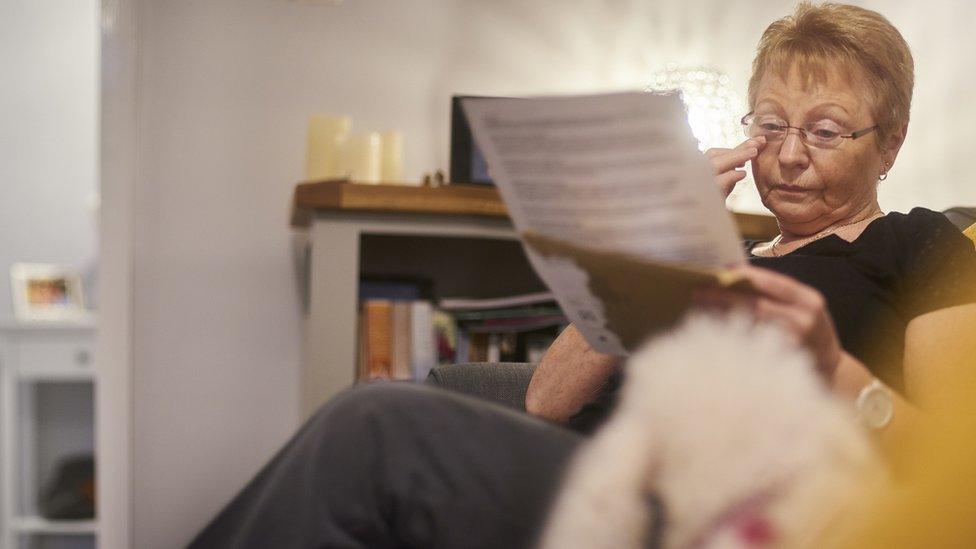
Multiple charities supporting vulnerable people in Wales say they have seen an increase in people reporting suicidal thoughts due to money worries
More people are contemplating suicide as they "cannot cope" as a result of rising costs, charities have said.
Charities supporting those with chronic diseases or disabilities have called for an overhaul of the benefits system.
One woman who has multiple sclerosis (MS) said her costs had almost trebled.
The UK government said it was committed to protecting the most vulnerable and is increasing benefits in line with inflation.
A chronic illness is a long-term health condition that may not have a cure, such as MS, arthritis or diabetes.
Sioned Williams, who has MS, said she struggled to pay the bills and could not do anything when she was cold due to her symptoms.
Ms Williams, from Anglesey, has a 15-year-old son who has additional learning needs. She said she sacrificed her own health by not switching on the heating in order to pay for petrol to take him to activities and appointments.
"My costs have almost trebled with just the price of gas and electric, and I wear more clothes and blankets to keep warm, as well as carrying a hot water bottle around, anything not to put the heating on," she said.
"There are costs when it comes to living with disabilities, to get things like scooters, the different aids we need to walk, they all cost a lot of money."

Ms Williams said meeting up with other people who have MS helped her cope
Ms Williams said she had to change her habits overnight and could not go out as often, which was having an impact on her mental health.
"They say stress is one of the worst things for MS, the stress to do with living costs is making me worse," she explained.
"I just don't know how we're going to cope if things are going as fast as they are."
Cat Shorney-Jones, from MS Society Wales, said many who come to them were "at the end of their tether", with the stress often affecting their condition and exacerbating their symptoms.

Cat Shorney-Jones says people living with illnesses like MS may not be able to work and have to rely on benefits
"People are incredibly desperate, they're having to choose between heating the house or eating, or putting fuel in cars to go to appointments," said Ms Shorney-Jones.
"There are people who are considering taking their own life because they just can't cope anymore, and there has to be a change, so people aren't suffering in this same way."
Ms Williams added that a highlight for her was meeting up with other people with MS once a month in a local café in Caernarfon, which she said was "so important".
Beryl Jones, from Llanfairpwll, who goes to the same café meet-up, said she has had to change the way she eats and spends money.
"I've decided not to put the heating on in certain rooms if I'm not there, I just put more clothes on," said the 80-year-old.
"That's what we did in wartime - I never thought I'd have to go through this again."
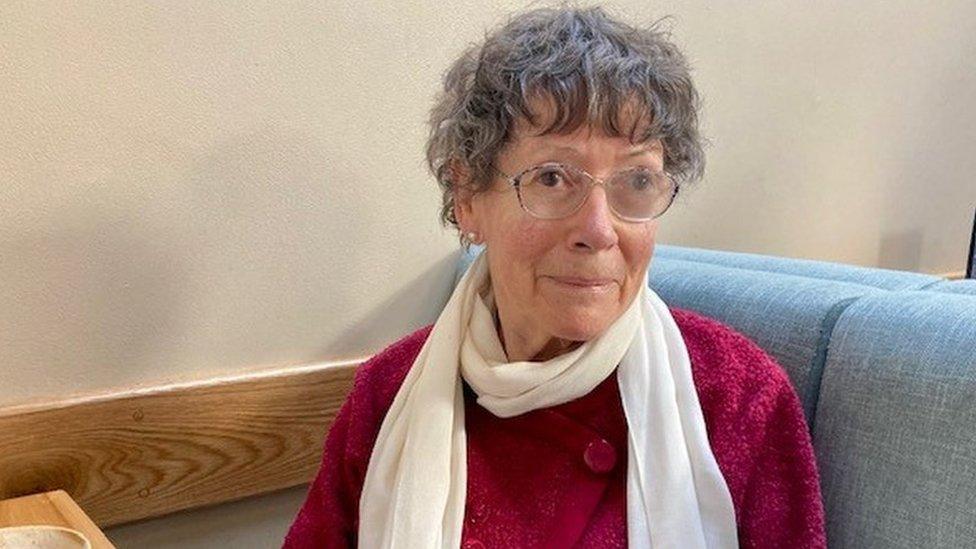
Rather than putting the heating on, Beryl Jones, 80, puts on more clothes in order to cut down on costs
Disability Wales said it had also seen an increase in mental health issues resulting from the cost of living crisis.
A spokesperson said: "Rising fuel and the cost of transport are leaving disabled people lonely and isolated as they can't get to family and friends.
"Multiple people have told us they have considered suicide."
Many people with illnesses such as MS, or a disability, can claim Personal Independence Payment (PIP) to help cover their extra costs.
It is claimed by around three million people who have disabilities and mental health conditions in the UK and is set to rise by 10.1% from April 2023.
PIP claimants are also expected to be among those entitled to a £150 disability cost of living payment this year.
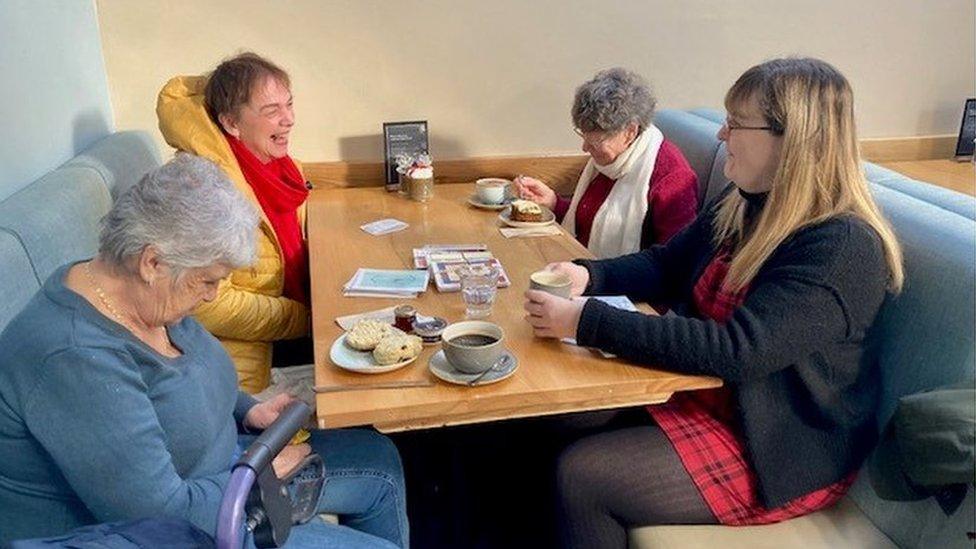
People living with chronic disabilties or diseases say the cost of living is having a negative impact
But Ms Shorney-Jones wanted to see an "overhaul of the benefit system" to make it easier for claimants if they are suffering with chronic conditions.
"We'd like to see, if somebody has their diagnosis, they have the benefits automatically, that they don't have to go through this laborious, traumatic system to try and prove that they need that money."
The UK government said it recognised those with long-term health conditions faced extra costs and was committed to protecting the most vulnerable.
A spokesman added: "That is why we're increasing benefits in line with inflation at 10.1% from April, and providing a further £1,350 of direct payments to the most vulnerable households in 2023-34.
"Our Energy Price Guarantee is also saving the typical household another £900 this winter, and we're extending additional funding to the Welsh government to help people in Wales with essential costs, by another £50m in the next financial year."
If you've been affected by any of the issues mentioned in this article, please go to BBC Action Line where you can find support
- Published8 March 2023
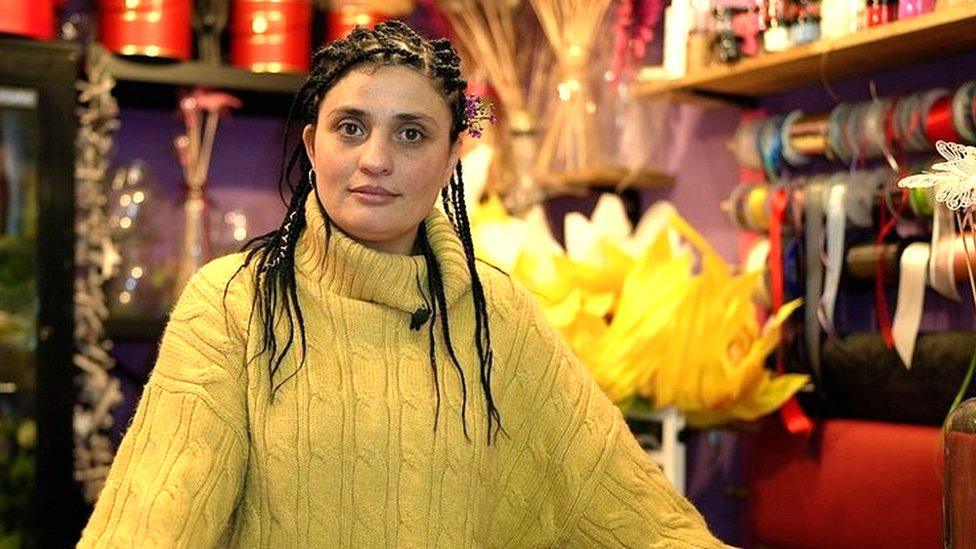
- Published7 March 2023

- Published25 January 2023
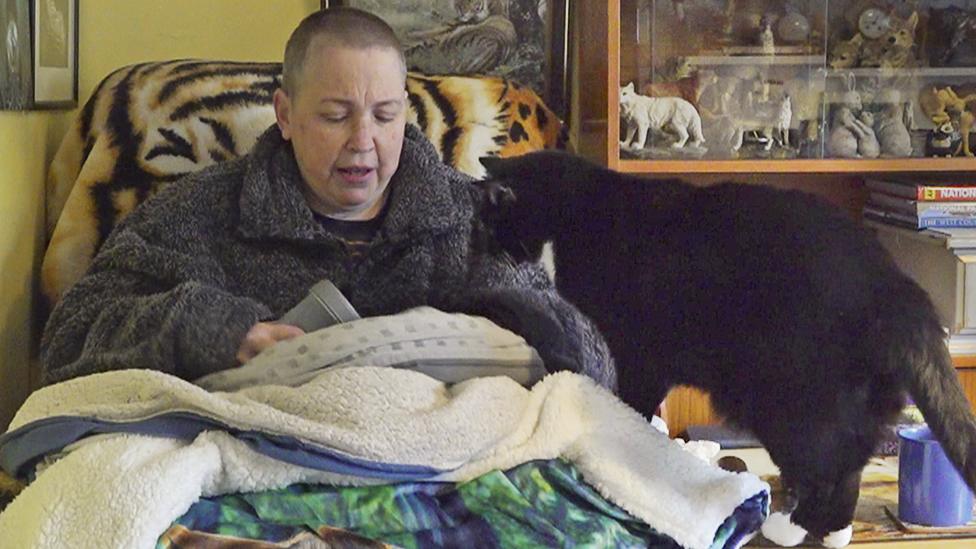
- Published15 November 2022

- Published11 March 2022
